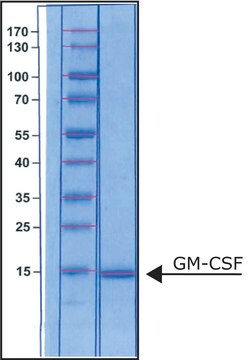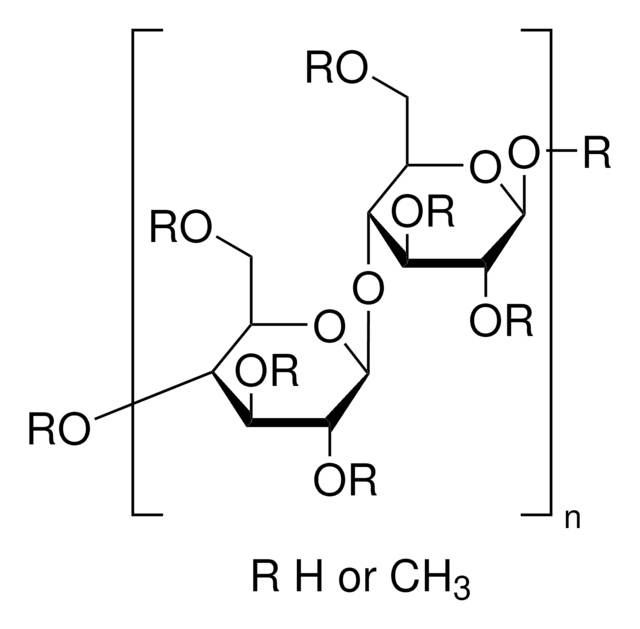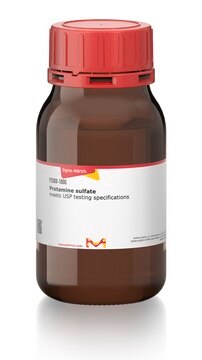G0792
Granulocyte-Macrophage Colony-Stimulating Factor from rat
>97% (SDS-PAGE), recombinant, expressed in E. coli, lyophililzed powder
Sinónimos:
GM-CSF
About This Item
Productos recomendados
Nombre del producto
Granulocyte-Macrophage Colony-Stimulating Factor from rat, GM-CSF, recombinant, expressed in E. coli
biological source
rat
Quality Level
recombinant
expressed in E. coli
assay
>97% (SDS-PAGE)
form
lyophilized powder
potency
0.03-0.1 ng/mL
quality
endotoxin tested
mol wt
14.7 kDa
packaging
pkg of 5X5 μg
pkg of 5 μg
storage condition
avoid repeated freeze/thaw cycles
impurities
<1 EU/μg
UniProt accession no.
storage temp.
−20°C
Gene Information
rat ... CSF2(116630) , Csf2(116630)
¿Está buscando productos similares? Visita Guía de comparación de productos
Biochem/physiol Actions
Physical form
Preparation Note
Analysis Note
comparable product
Storage Class
11 - Combustible Solids
wgk_germany
WGK 3
flash_point_f
Not applicable
flash_point_c
Not applicable
Elija entre una de las versiones más recientes:
¿Ya tiene este producto?
Encuentre la documentación para los productos que ha comprado recientemente en la Biblioteca de documentos.
Nuestro equipo de científicos tiene experiencia en todas las áreas de investigación: Ciencias de la vida, Ciencia de los materiales, Síntesis química, Cromatografía, Analítica y muchas otras.
Póngase en contacto con el Servicio técnico





